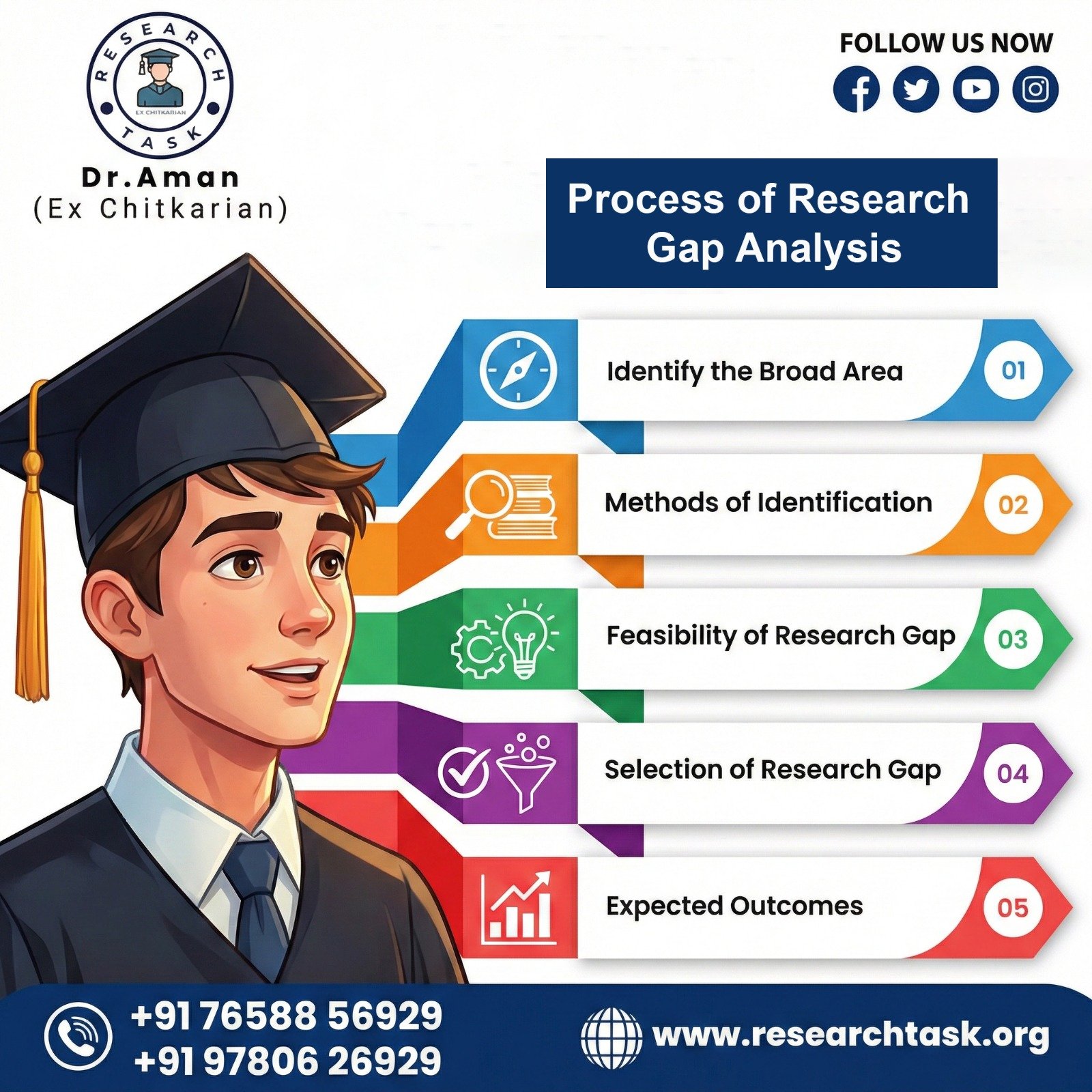Choosing the Research Topic for PhD is one of the most important steps for any doctoral student. A carefully selected topic not only keeps you motivated throughout the long research journey but also ensures that your work makes a meaningful contribution to your field. Many scholars struggle at this stage because the decision involves balancing personal interests, academic value, and practical feasibility. With the right planning and proper Academic Research Guidance, you can make this decision with clarity and confidence.
1. Why the Right Topic Matters
Your PhD thesis is the centerpiece of your academic career. A strong topic lays the foundation for meaningful research, better publication opportunities, and recognition within your academic community. A poorly chosen one, on the other hand, can lead to stress, wasted effort, and even delays in completing the degree.
2. Align with Your Interests and Strengths
The first step in selecting a strong topic is to reflect on your academic passions. Ask yourself:
- Which subjects keep me curious and motivated?
- What areas have I studied deeply before?
- Where do I have some level of expertise already?
Selecting a topic that excites you ensures that you’ll stay dedicated during the long years of research.
3. Conduct a Thorough Literature Review
Reading widely in your field helps you discover gaps in knowledge and areas of ongoing debate. Explore:
- Journal articles
- Previous theses and dissertations
- Conference proceedings
These resources help you identify where you can make a meaningful contribution. Your goal should be to find a balance between what has already been done and what still needs exploration.
4. Evaluate Feasibility and Resources
Not every interesting idea is practical. Consider:
- Do you have access to the data you need?
- Is your methodology realistic within your time frame?
- Do you have the necessary tools, software, or facilities?
Choosing a feasible topic prevents unnecessary obstacles and keeps you on track to meet deadlines.
5. Match with Institutional Priorities
Your university or department may have specific research themes or focus areas. Aligning your topic with these priorities can give you access to better mentorship, resources, and even funding opportunities.
6. Seek Constructive Feedback
Before finalizing your topic, share your ideas with mentors, supervisors, and peers. Their input can help you refine your focus and avoid potential pitfalls. Many students also turn to PhD thesis writing services to receive structured feedback on their early ideas, draft proposals, or even the organization of their literature review.
7. Draft a Mini Proposal
Before committing fully, write a brief proposal covering:
- Your main research question
- Objectives of the study
- Proposed methodology
- Expected contribution
This will help you assess whether your topic is clear, manageable, and academically valuable.
8. Focus on Novelty and Contribution
A good doctoral topic should bring something new to the academic world. Ask yourself:
- Does my idea add a fresh perspective?
- Will it challenge or expand current knowledge?
- How will it benefit future research or practical application?
Novelty is one of the strongest factors in making your PhD thesis stand out.
9. Think About Future Opportunities
Consider where your topic might take you after your PhD. Will it open doors for academic positions, research grants, or industry collaboration? A well-chosen topic can strengthen your career path beyond graduation.
A strong research topic for PhD provides structure for every stage of your journey. From methodology to final defense, your chosen topic acts as the roadmap that guides your effort and ensures you stay focused on your goals.
10. Plan for Flexibility
It is normal for research topics to evolve slightly as you gather data and refine your arguments. Be open to narrowing your focus or adjusting your research questions if needed. Flexibility helps you maintain relevance while staying on track.
11. Stay Engaged and Curious
Even the best topic requires long-term dedication. To stay motivated:
- Attend seminars and workshops
- Join academic networks
- Engage with new research in your field
Curiosity ensures that your enthusiasm continues throughout your PhD.
12. Leverage Available Support
Doctoral research is demanding, and no one should approach it in isolation. Guidance from supervisors is essential, but additional support such as academic research guidance workshops or professional PhD thesis writing services can be valuable when it comes to refining structure, editing drafts, or ensuring proper formatting. Using these resources strategically keeps your work polished and professional.
13. Regularly Review Your Progress
Schedule checkpoints with your supervisor or advisory committee to review whether your topic still fits your timeline and objectives. Early adjustments are much easier than late-stage changes.
14. Build Toward Publication
From the beginning, think about how your work could translate into journal articles, conference presentations, or even book chapters. A topic with publication potential strengthens both your thesis and your academic profile.
Conclusion
In the end, choosing the research topic for PhD is a decision that requires balance between passion, feasibility, and originality. By aligning your interests with institutional strengths, conducting a thorough literature review, and seeking constructive feedback, you create a strong foundation for success. Along the way, professional support such as PhD thesis writing services and expert academic research guidance can help you refine your approach and maintain high standards. With the right preparation and mindset, your topic becomes not just the start of your PhD, but the cornerstone of your academic career.








